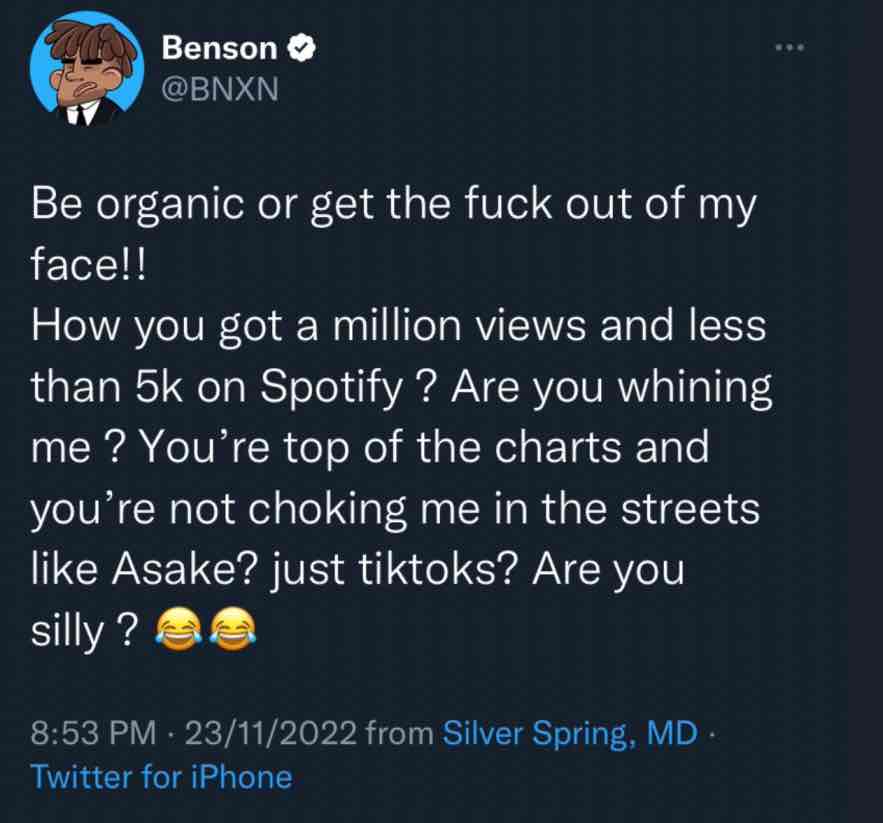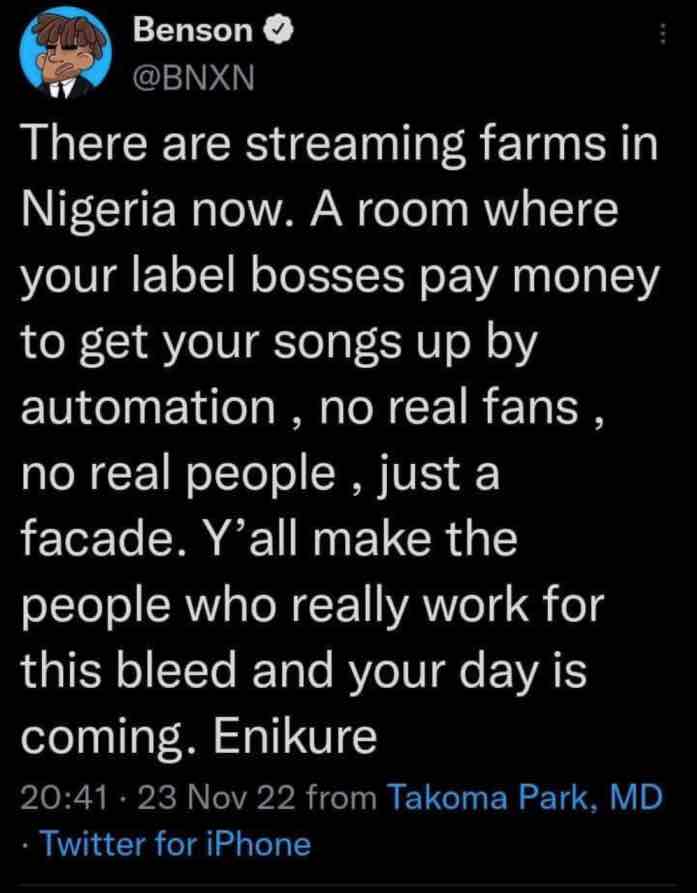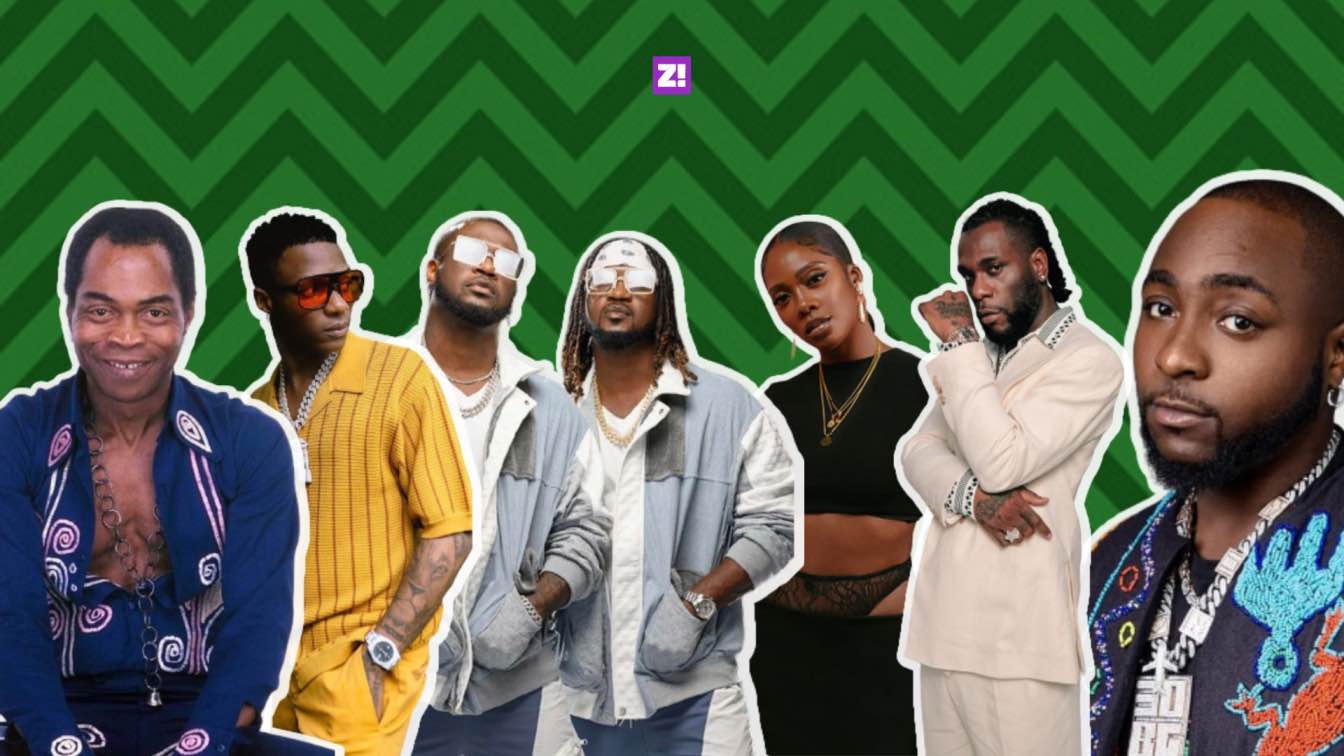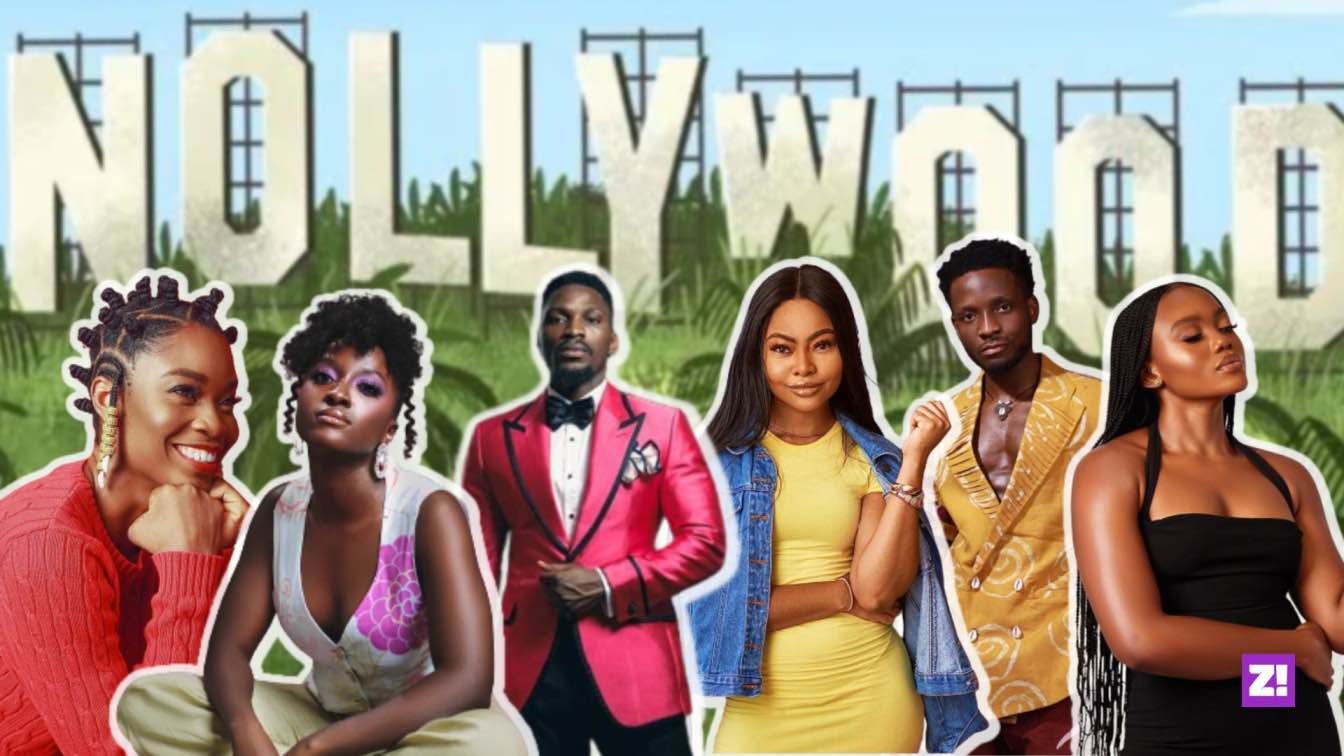Watching Ruger and BNXN fight on Twitter is nothing new. As a matter of fact, it happens almost every time one of them has a new song coming, forcing the internet to believe they’re probably in the same group chat. Like clockwork, BNXN dropped Traboski just hours after their back and forth. But outside of their recent fight being chaotic as hell, it also revealed something Nigerians can’t stop talking about — streaming farms.


Streaming Farm 101
Nigerians are already used to the word farming — Buhari asked us to “go to the farm and earn respect” in 2018, and Tinubu threatened to send 50 million youths to the farm during his campaign — but most people aren’t used to streaming farms.
While the concept sounds like a new area of tech that could finally make our tech bro aspirations a reality, streaming farms are companies designed to add fake streams to a song using bots or multiple phones at a time. Yes, I know, it sounds crazy, but when you remember how easy it is to buy likes or followers on social media, it makes total sense that buying streams is a possibility.
These streaming farms take advantage of apps like Spotify, Apple Music, Audiomack and Deezer, also known as Digital Service Providers (DSPs), making a shitload of money for themselves and their clients. However, before it starts to look like a “Nigerians are always doing 419” scenario, it’s important to note that streaming farms are not unique to Nigeria. They’re actually global and used by both established and upcoming artists.
RECOMMENDED: Marketing 101: How to Blow As a Young Nigerian Music Artist
How streaming farms works
These streaming farms are known to create bots — software applications passing off as human internet users. Because of their ability to mirror human subscribers, these bots are programmed to carry out human activities, like streaming music, but on a large scale.
So while Americans (no data for Nigeria, unfortunately) can listen to music for an average of a little over two hours a day, bots can do 24 hours straight because they don’t have to sleep or look for ewa agoyin
Alternatively, some streaming farms just use a lot of phones to play a song over and over again. Wild AF! But it’s true.
Why do artists and labels use streaming farms?
How many times this year have you seen your faves post a screenshot of their song topping the charts on either Spotify or Apple Music? Whether we like it or not, streaming is here to stay, and it’s an important part of an artist’s career.
The amount of streams you get as an artist doesn’t just give you bragging rights. It also helps you make money since DSPs are known to pay artists based on streams. But bragging rights and money aside, streaming numbers do something else; they pique people’s curiosity.
Several times, I’ve seen a song top the charts or amass a truckload of streams even though I’ve never heard it anywhere, and none of my friends have either. The fact that this song is such a “hit”, and I’m completely oblivious to its existence, makes me feel left out. How are millions of people on this wave, and I’m dulling? And before you know it, I’m streaming the song.
The truth is, I’m not the only one who streams songs out of curiosity and FOMO, a lot of people do it too. This introduces them to a new artist or song, even though the initial hype surrounding the artist is fake. Streaming farms maintain the hype or position of top artists as hitmakers while it helps smaller artists break out.
In a normal world, the number of streams on musical platforms would be an accurate and true determination of a song’s or artist’s popularity, but we don’t live in a normal world, do we?
Are streaming farms legal?
Before you consider starting your own streaming farm or employing one, know it’s all at your own risk, dear. While Nigeria doesn’t have an explicit law proving streaming farms are fraudulent entities, using them still counts as a direct violation of the terms and services of streaming platforms.
What streaming farms do to the music industry
Ruger and BNXN’s Twitter fight might’ve exposed streaming farms on a large scale, but the truth is, most people have known about it for a long time.
For independent and upcoming artists, streaming farms make an already hard industry ten times more difficult to break into. Forget competing with other talents, you now have to compete with their social media following and the multiple bots they have streaming their songs.
Streaming farms also mess up how we consume or receive music. Not only does it trick listeners into listening to a song, but it also makes it hard to know if the artists or songs are actually hot. Do the streets and clubs really love you? Or have we been manipulated into thinking we do?
ALSO READ: Why Asa’s “IDG” with Wizkid Is Missing — and Why She’s Suing Joeboy




